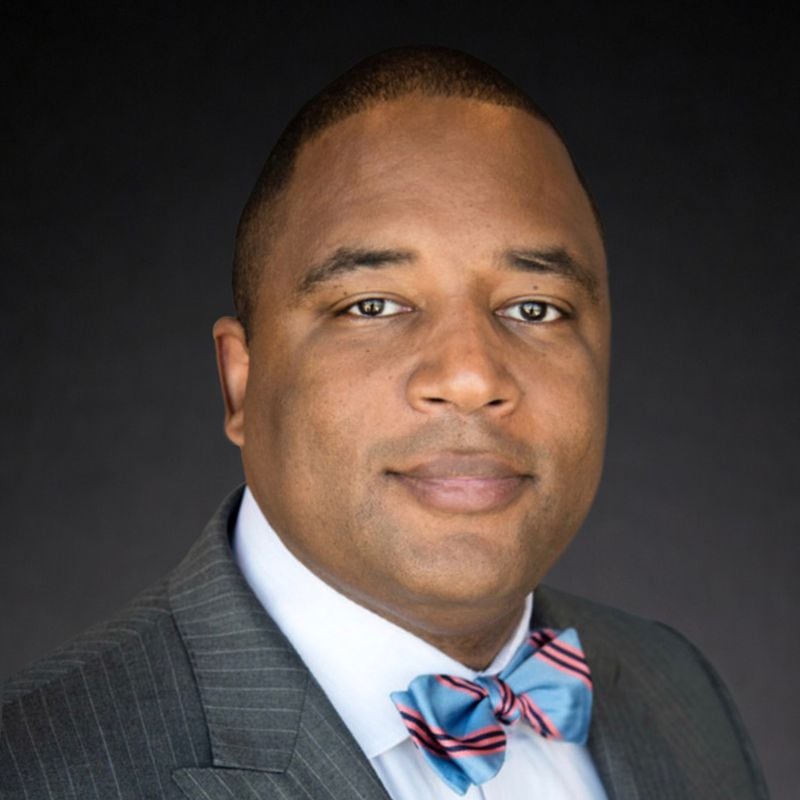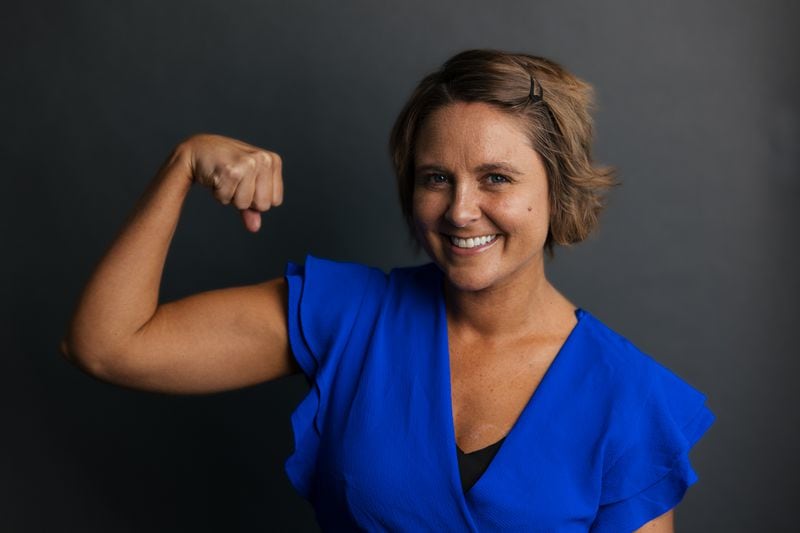Colorectal cancer doesn’t just affect people over 50
3/06/2023, Atlanta Journal Constitution

Cancer and rectums are likely two of the most unanimously uncomfortable topics to consider or discuss.
Sarah Broadus found herself discussing and considering the reality of how cancer and her rectum would drastically change her life almost two years ago. And it shows how colorectal cancer doesn’t discriminate — despite people over 50 being the majority of people who have it.
On Mother’s Day weekend of 2021, the Woodstock event planner noticed some bloating and intense cramps. Doctors found a tumor in her uterus, which was surgically removed during a hysterectomy. Shortly after, doctors told her she also had a 10-millimeter tumor in her colon that was stage 4 colorectal cancer.
“I was a healthy person. I eat healthy. I don’t drink alcohol,” the wife and mother of four told The Atlanta Journal-Constitution. “I’ve made healthy life choices, so I was completely in shock that I had colorectal cancer.”
At just 36, she was especially stunned that she was diagnosed with a form of cancer she associated with older people. More than 90% of colon and rectal cancer prognoses are delivered to patients ages 50 and older, but Broadus’ experience is an example of how colorectal cancer can affect anyone at any age.
Early detection for screenings of polyps and cancer is where the mortality rate for older adults diagnosed could be greatly improved, according to Elizabeth Jordan, spokesperson for Fight Colorectal Cancer, a Springfield, Missouri-based advocacy organization for the condition. Approximately 75% of colorectal cancer deaths occur in people over the age of 65.
“All adults — starting at age 45 or before — should talk to their doctor about screening for polyps and cancer,” Jordan said. “Anyone experiencing signs and symptoms of colorectal cancer (at any age) should be screened. The primary reason: colorectal cancer screening can save your life.”
According to the American Cancer Society, signs and symptoms can include a change in bowel habits, rectal stool, cramping or abdominal pain, and weakness and fatigue.
Colorectal cancer is the fourth-leading cause of cancer-related deaths in the United States, according to the Centers for Disease Control and Prevention. Survivors such as Broadus and medical experts are working tenaciously to change that statistic by raising awareness about prevention, early detection and treatment.
“We do so much preventative care with mammograms and pap smears,” Broadus said. “Buttholes are not something people like to talk about, but it’s a part of our bodies...By letting people know what to do, it can save so many lives.”
Removing the barriers
Colorectal cancer is the third-most diagnosed form of cancer in the country yet the knowledge about the condition and prevention is minimal for most, said Dr. Kevin E. Woods. He is the chief gastroenterologist of Interventional Gastroenterology, Endoscopy and Nutrition at City of Hope Atlanta, a national collective of medical centers that specializes in cancer care.

Colorectal cancer is a cancer of the large intestines and the rectum. It’s somewhat different from colon cancer, but the prevention methods and treatments are similar, Woods said. Preventing the condition comes down to knowledge and removing the barriers of access.
“In many cases, it’s just a lack of knowledge, depending on one’s health literacy and access to care,” Woods told The Atlanta Journal-Constitution. “Many people just don’t know the appropriate age for screening.”
Woods emphasizes that all healthy adults should be screened via a colonoscopy for colorectal cancer by the age of 45. A diagnostic colonoscopy is necessary prior to turning 45 if patients have various risk factors, including:
- Blood in the stool
- Unexplained weight loss
- Abdominal pain
- Family history of benign polyps in the colon
- Any family history of colorectal cancer
- Irritable Bowel Syndrome
- Certain genetic factors
The risk of colorectal cancer is higher for older adults and African-Americans in younger age groups, Woods said. Awareness about the significance of early detection could be impactful for both of those groups. Beyond the knowledge, Woods has made it his mission to advocate for removing the limitations on access to care.
“We need to do a much better job in emphasizing that colorectal cancer can be prevented if detected early,” he said. “High-quality, optical colonoscopies are available to most patients. Still, there is a barrier to care for people who are under-employed and under-insured.”
Even without insurance, colonoscopies and testing can be affordable, Woods said.
Removing the fear
The advancements in medicine have made the treatment of benign polyps of the colon or cancerous polyps much more palatable for patients. If a patient has benign polyps, there are ways to remove those endoscopically in an outpatient procedure, Woods told the AJC.
Generally, treatment for colorectal cancer involves surgery, radiation and chemotherapy. Broadus experienced all of those as a part of her treatment plan. She spent a year with no signs of cancer after enduring chemotherapy and surgery. Late last year, doctors found what is called a spark of cancer in her scar tissue, so she is currently undergoing chemotherapy for that.

Though Broadus and her family have been challenged by her diagnosis, she wants more people to overcome their fear of the prevention measures and even the treatment of the disease. She serves as an ambassador for Fight Colorectal Cancer. She also uses her TikTok page @sarahbroadus to remove the stigma around it. One of her videos about her experience with colorectal has received more than 500,000 views. She’s recorded real-life moments such as the process of a colonoscopy to help normalize the procedure.
“I don’t want anyone to go through what I went through, so I share my story,” she said. “I want more people to not be so afraid of colonoscopies. The hardest part is the prep. People need not to be scared of it. We need to get more people healed.”
View More